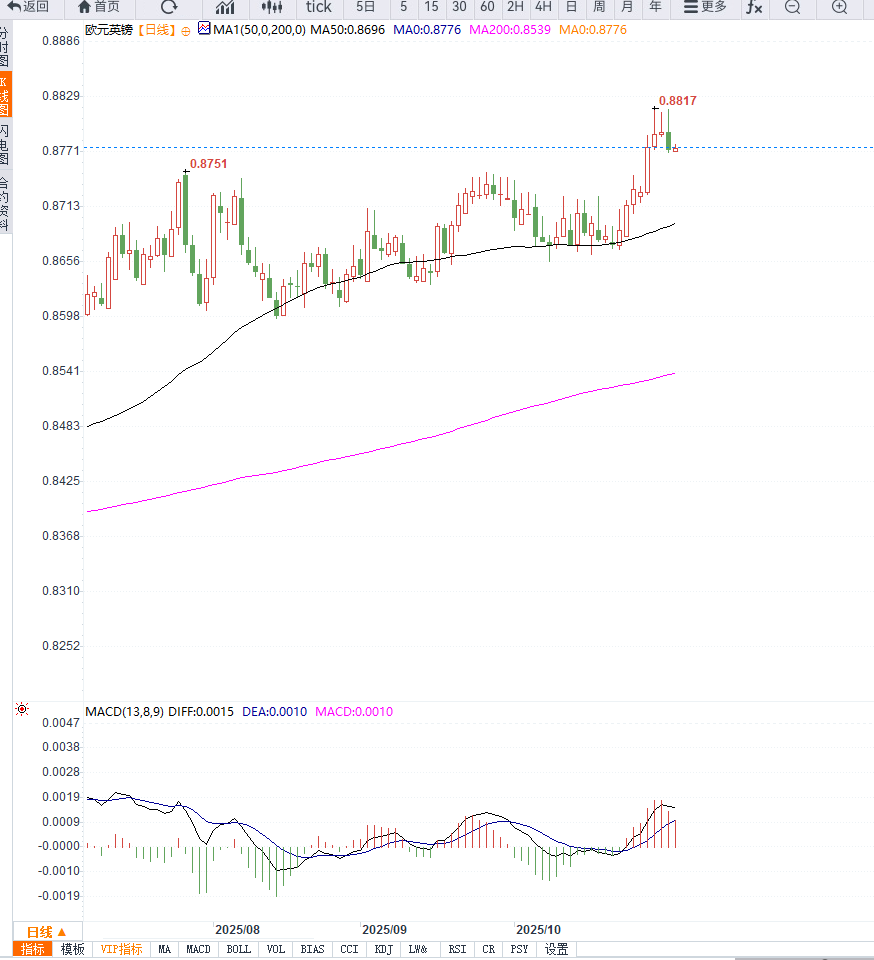Elevated fiscal risks in the UK pushed the euro higher against the pound, with markets focused on the Bank of England's interest rate decision.
2025-11-03 15:32:54
British Chancellor of the Exchequer Rachel Reeves is facing dual political pressure from Parliament and within her own party. Investors are concerned that the upcoming autumn budget report may include tax increases and fiscal austerity measures, thereby dragging down economic growth expectations.

Some market analysts believe that if fiscal tightening is too aggressive, the Bank of England (BoE) may initiate an interest rate cut cycle ahead of schedule, lowering the interest rate from the current 4.0% to 3.75%.
British economic analyst Jonathan Clark said: "Fiscal policy uncertainty has weakened investor confidence, and the details of the autumn budget will determine the market's judgment on the medium-term trend of the pound."
The market widely expects the Bank of England to keep interest rates unchanged at its meeting on Thursday, mainly due to persistently high inflation and policymakers' desire to assess further monetary action after fiscal policy is implemented.
Meanwhile, the European Central Bank (ECB) kept its deposit rate unchanged at 2.0% for the third consecutive time at its meeting last week. ECB President Christine Lagarde emphasized: "The central bank is in a good position and will take all necessary measures to maintain this."
In addition, ECB Council member Joachim Nagel said on Monday that the latest economic data for the eurozone was broadly in line with the central bank’s forecasts, but policymakers are maintaining policy flexibility to address potential risks.
In France, Finance Minister Sébastien Lecornu will hold closed-door talks with lawmakers this week in an attempt to reach a consensus on the budget. Market research indicates that if budget negotiations fail and trigger a vote of no confidence, the French government could face disintegration, potentially leading to early elections.
A European political researcher pointed out: "If the French fiscal deadlock continues, it will put temporary pressure on the euro."

Editor's Note:
In the short term, the euro's rise against the pound is primarily driven by UK fiscal uncertainty rather than improvements in Eurozone fundamentals. If the UK autumn budget is as tight as the market fears, the pound may continue to face downward pressure. However, French political risks could exert counter-pressure on the euro in the medium term, keeping the EUR/GBP exchange rate within a range.
- Risk Warning and Disclaimer
- The market involves risk, and trading may not be suitable for all investors. This article is for reference only and does not constitute personal investment advice, nor does it take into account certain users’ specific investment objectives, financial situation, or other needs. Any investment decisions made based on this information are at your own risk.





















